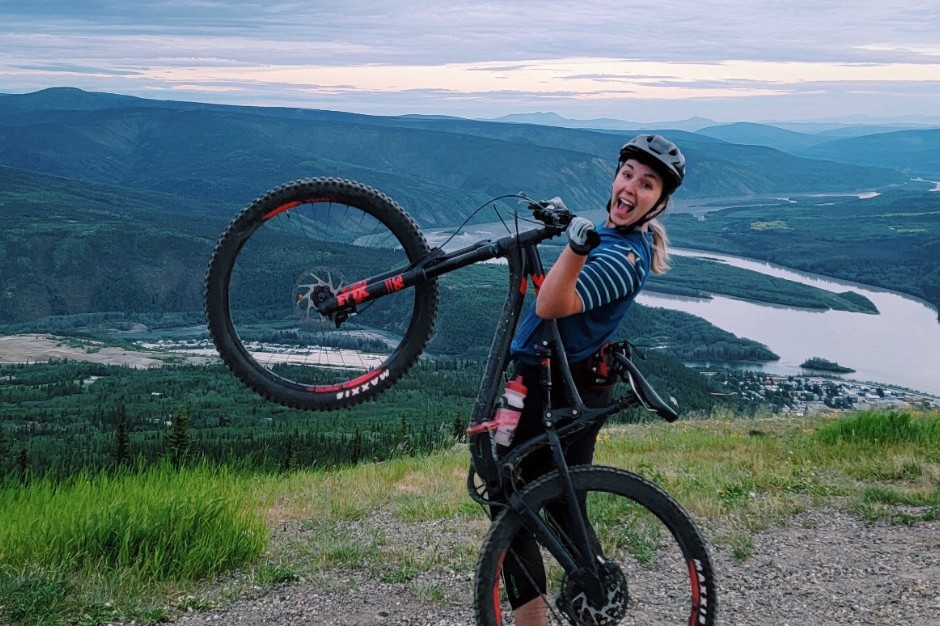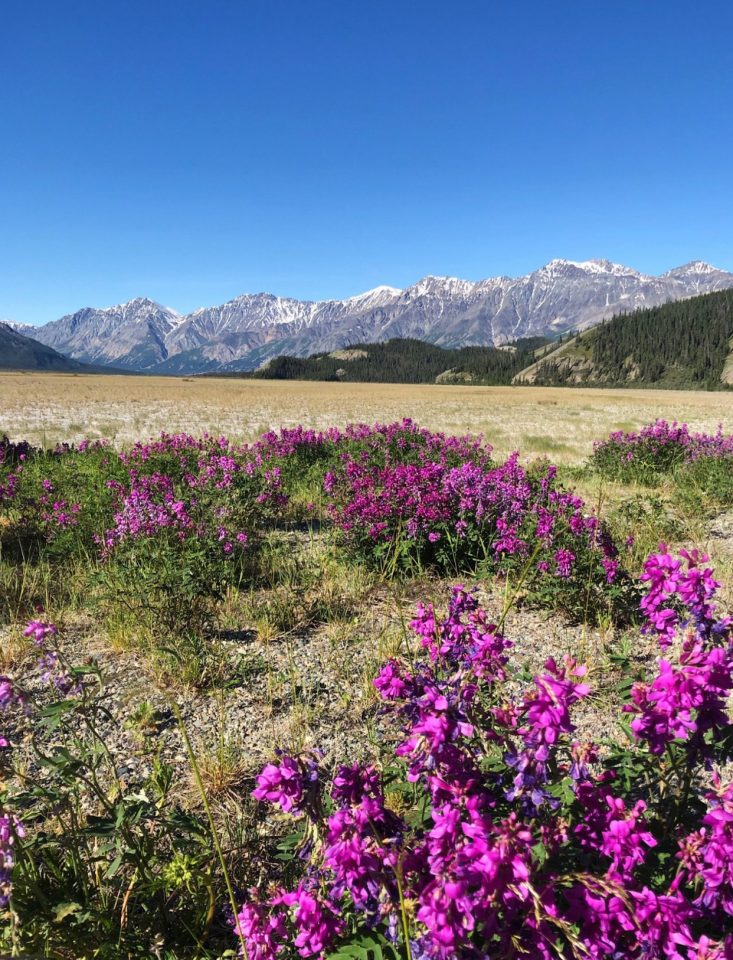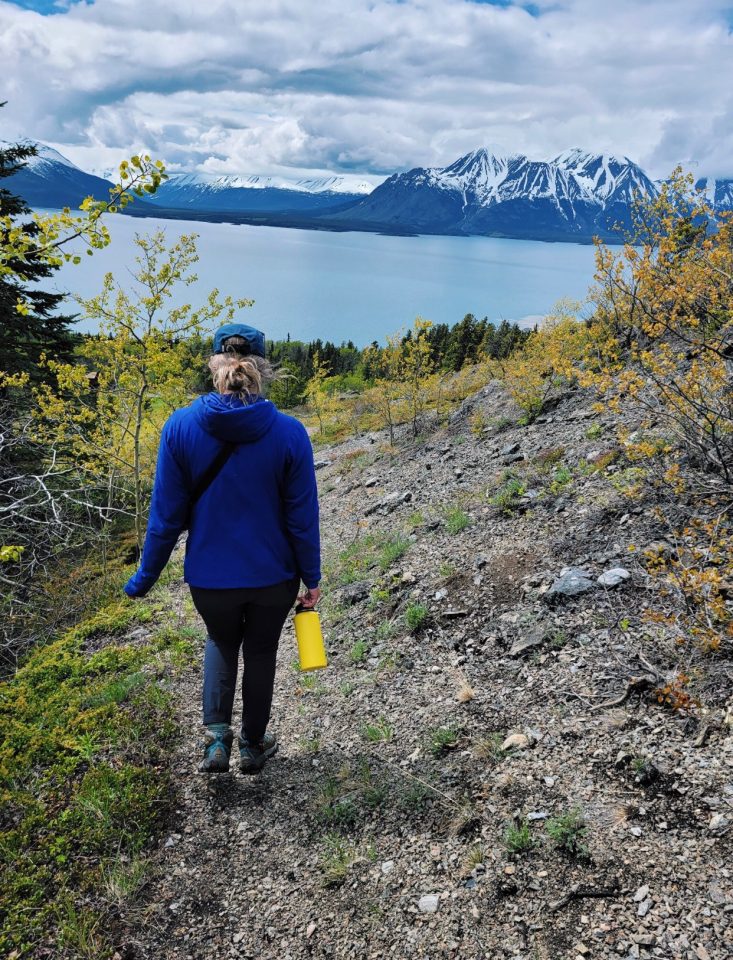
Rebecca Milligan (MOT North, class of 2022), who grew up in Quesnel in Northern BC, took some time out of her current placement in Vancouver to reflect on her experience as a student occupational therapist at a hospital in Whitehorse (Yukon) and on her placement in the community in Terrace.
Northern placements have provided the “opportunity to see a lot of things,” she said. In Whitehorse, where there is only one hospital serving all of the communities in the surrounding region, there was naturally a lot of “diversity in terms of what you see, which is very different from acute placements in the city.” For example, the hospital would receive MedEvac cases from across the province, which offered a huge “diversity in terms of presenting symptoms and medical diagnoses.” There was also the added benefit of being involved in both inpatient and outpatient care, where Rebecca would naturally be able to follow up on patients even after they had been discharged. She reflected on the benefits of having a central point for a patient’s healthcare needs in that it “is great for the continuity of care.”
Notably, Rebecca spoke highly of the Yukon’s approach to Indigenous health.
Yukon health providers are “pretty big leaders in Indigenous health. Yukon University’s First Nations 101 is a mandatory course before starting the placement and Indigenous health is integrated into many aspects of care. For example, First Nation diets were offered to folks—diets that were high in protein and traditional to the land. First Nation health workers liaised closely with physicians and the rest of the healthcare team, which I haven’t seen anywhere else.”


In her placement in Terrace, Rebecca was based in community care, visiting homes and working with clients to help them live at home for as long as possible, adapting their environments to support participation in all of life’s activities. In addition to the variety she enjoyed in Whitehorse, she also found that in both locations “you have a higher level of independence. Preceptors are more willing to let you take on more responsibilities.”
Some of this independence comes with a variety of challenges. “There are fewer resources in the north and weather is a barrier. But this has also led to really cool things that I haven’t seen before.” The functionality of equipment becomes critical, such as wheelchairs that can handle the Northern terrain and climate in terms of power, charge and grip. “A lot of folks there have to be more creative because of fewer resources” and there is a lot of collaboration as many clients have creatively developed adaptive solutions of their own. It’s up to the OTs to help clients further adapt in ways that will best support their occupations.
One client, for example, had “tons of creative ideas” and was also “a higher risk-taker, so we worked together to find solutions that accommodated him, minimized the risk where possible, but also still allowed him to take the risks that were meaningful to him.” The client-centredness of this approach, which incorporates the expertise of both the client ad the occupational therapist captures people’s determination to engage in meaningful occupations and the strength of relationships in northern communities.
There is a “community of healthcare providers that is very open and willing to share and help each other out,” Rebecca said. Rural provision of care promotes teamwork by its very nature. “With lower resources you depend on each other more. Some people have been there longer and know where to go for certain resources to make things happen faster.”
Of course, there are challenges and negative aspects to working in the North too. “High case loads and long wait times are hard”, Rebecca said, especially when clients are trying to “access services that you know would be easily accessible to those in the city.”


Northern practice may not be for everyone. “It can be hard with the elements, and you are more isolated.” But, Rebecca suggested, with a sense of adventure and a willingness to try new things, trainee OTs can overcome the psychological hurdle of getting to the North and find the community and lifestyle they might be looking for. Rebecca was undeniably passionate about working in Northern BC, and acknowledged the balance of the barriers versus the benefits. She had, however, also experienced the other side: “If you’re from the North, there’s a huge barrier coming down to Vancouver to train as an OT, with the lifestyle change and the cost of living.” When Rebecca went back North for her placements, “coming from Northern BC, I had realistic expectations.”
Rebecca has high hopes for the future of Northern care. The increasing exposure of occupational therapy to people in the area (including the addition of the Prince George location of the MOT North program) will “hopefully bring more awareness to the profession and open people’s eyes to this incredibly rewarding job.”
“There’s already a large interest in healthcare in the North. If people are researching different programs, they may come across OT, look into it and see what it is. I didn’t know about OT until I was at university.”
There are currently plenty of job opportunities in Northern communities for occupational therapists (Rebecca said this would make it harder to decide where to go next!). The hospital in Whitehorse had two full-time OTs, and in Terrace, a second full-time position was on the cards, likely due to Rebecca’s “amazing preceptor, Amanda, who is an incredible advocate for OT.”
Beyond her OT placement work, Rebecca’s attraction to Northern BC and the Yukon is firmly based in the sense of community. “Community events, knowing everyone, meeting like-minded people who are excited to share the area they really love” are clearly key for her, along with the centrality of the outdoors as part of everyday life.
Rebecca, who loves backcountry skiing, hiking, mountain biking and river rafting, spoke passionately about how outdoor activities are not only readily accessible, but also play a central role in people’s lives. It’s this lifestyle and sense of camaraderie that may well draw Rebecca away from the city after graduation.
